America is overextended. Here’s a better way forward.
Washington Post | “ The “simultaneity problem,” as it’s known in military circles, has been the most serious grand strategic challenge facing the United States for some time now.”........

We believe that the primary task for our generation is to build a new American strategy attuned to the pressing realities of our time. This framework must be comprehensive of the major regions and dimensions of U.S. power and interests. It must also be willing to challenge established wisdom and inertia in U.S. national security policy and related fields.

J.C. Ellis
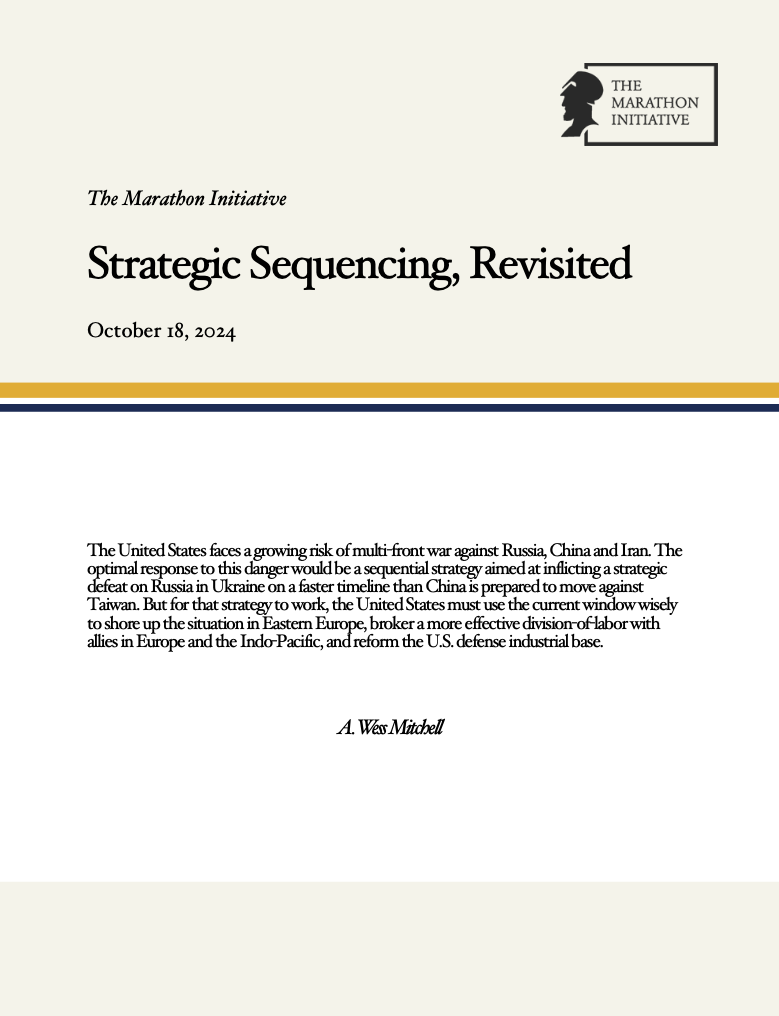
by Wess Mitchell
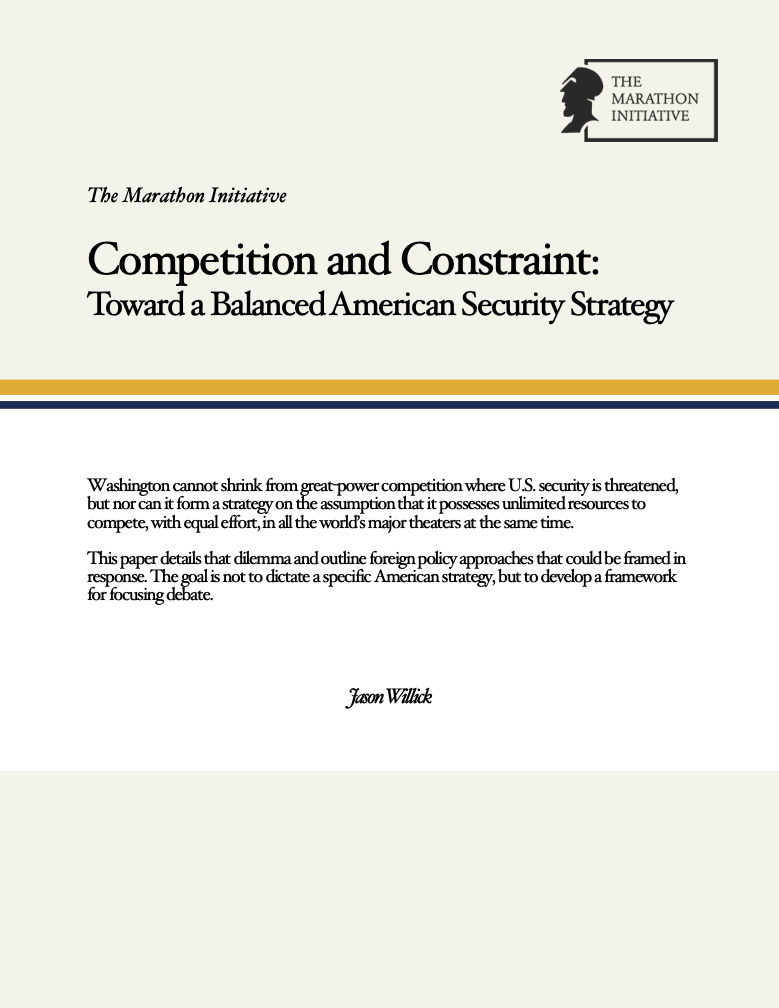
by Jason Willick

by Christopher Vassallo
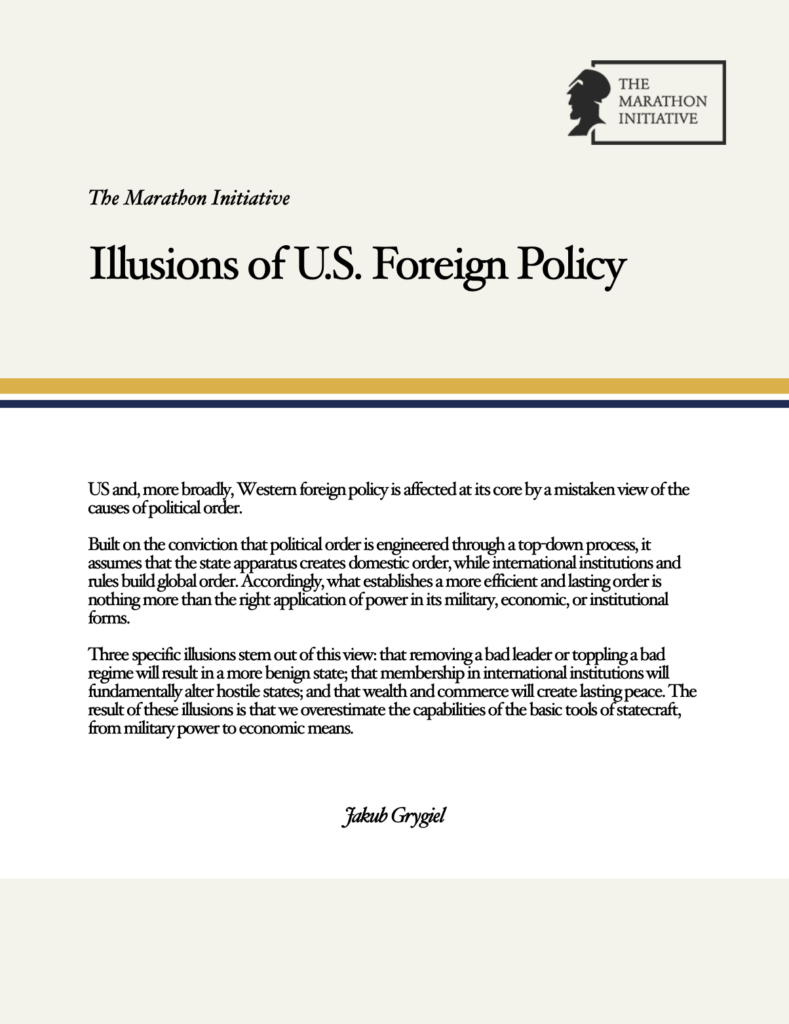
by Jakub Grygiel
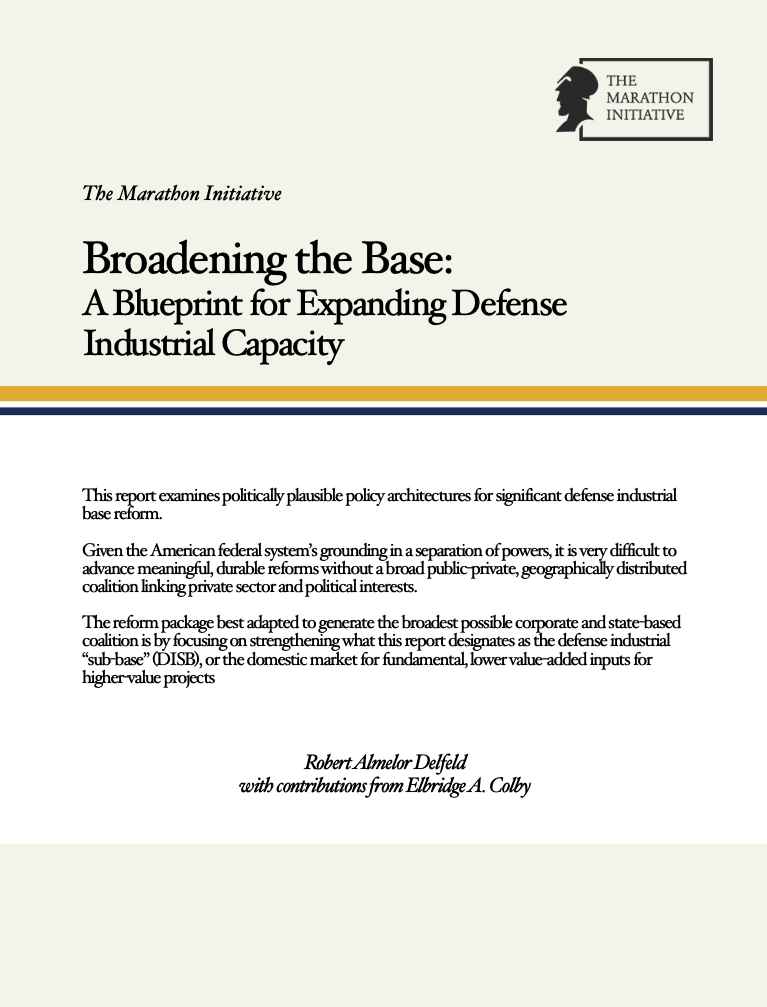
by Robert Almelor Delfeld, with contributions from Elbridge A. Colby
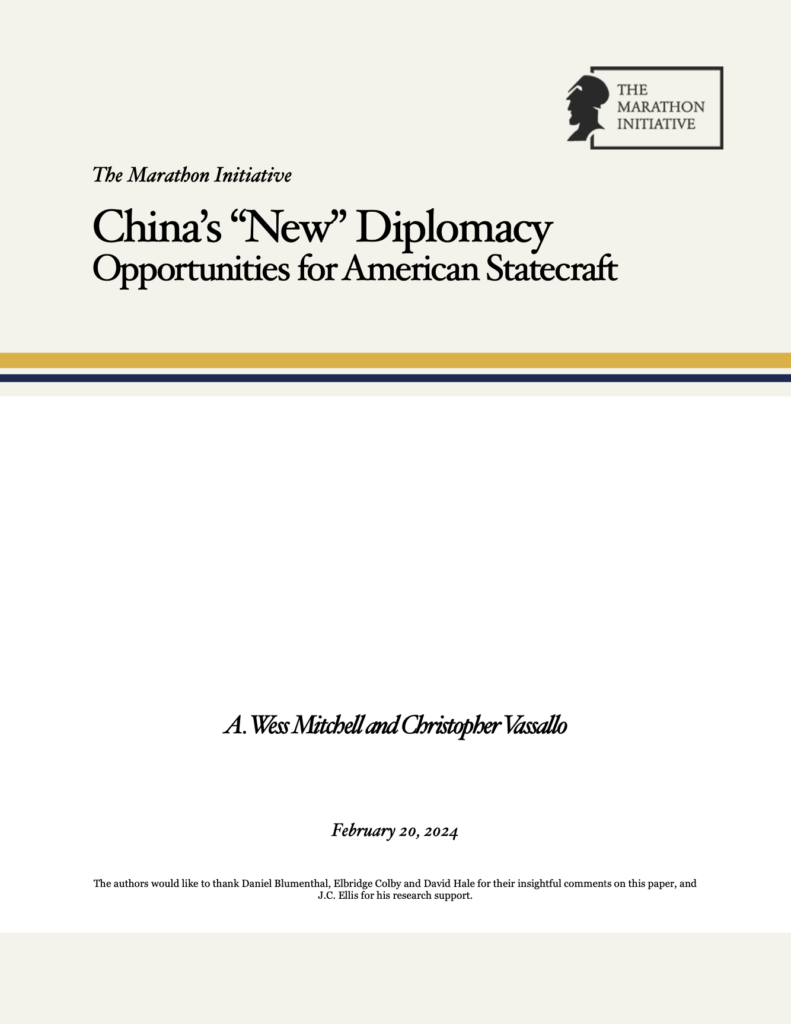
by A. Wess Mitchell and Christopher Vassallo
1730 Rhode Island Ave NW, Suite 201, Washington, DC 20036
The Marathon Initiative © 2023 All Rights Reserved